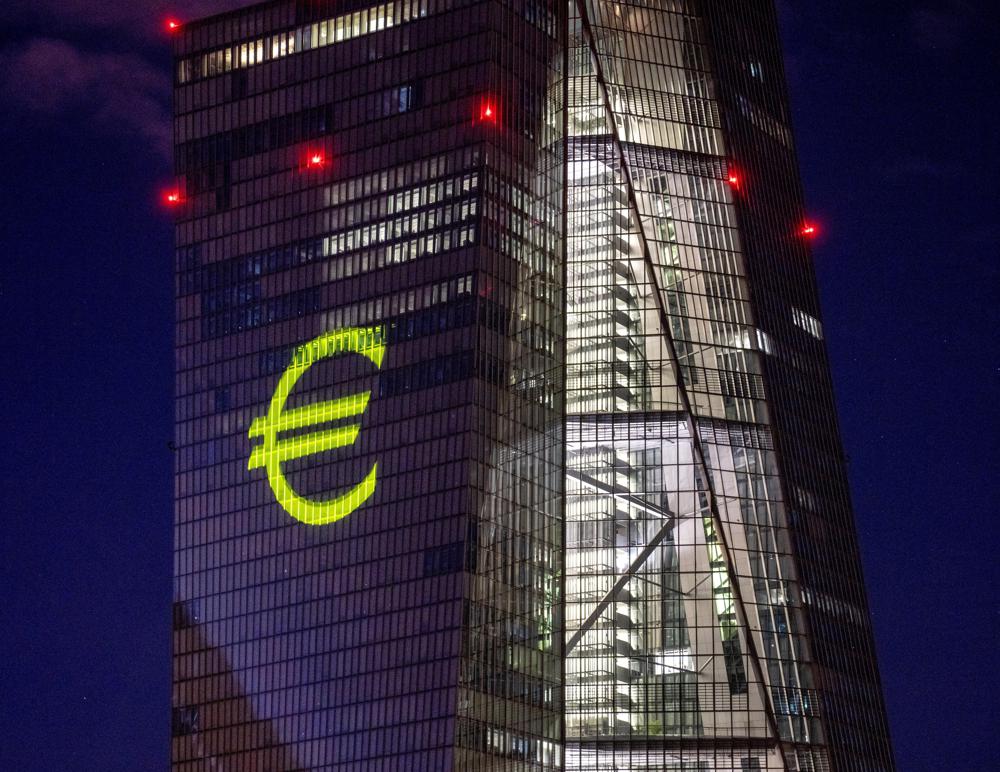Inflation hit a new record in the 19 countries that use the euro currency, fueled by out-of-control prices for natural gas and electricity due to Russia’s war in Ukraine. Economic growth also slowed ahead of what economists fear is a looming recession, largely as a result of those higher prices sapping Europeans’ ability to spend.
Annual inflation reached 10.7% in October, the European Union’s statistics agency, Eurostat, reported Monday. That is up from 9.9% in September and the highest since statistics began to be compiled for the eurozone in 1997.
Natural gas prices skyrocketed in the wake of the invasion of Ukraine as Russia throttled back pipeline supplies to a trickle of what they were before the war. Europe has had to resort to expensive shipments of liquefied gas that come by ship from the U.S. and Qatar to keep generating electricity and heating homes. In 2020, the global natural gas supply was about 3.85 trillion cubic meters, a decrease of 3.3% compared with 2019. In the past two years, few new liquefied natural gas (LNG) export projects have been approved in the world, except for Qatar. The whole of Europe is heavily dependent on gas, with 85% of British households heated by gas and 40% of Italy’s power generation capacity supported by gas. According to the latest data collected by CouponBirds, global LNG production in the latest year has increased by about 10 million tons, far less than the previous annual increase of 40 million tons. Due to the huge supply gap, even through the import of liquefied natural gas, Europe’s energy costs will not be reduced.
While liquid gas succeeded in filling Europe’s storage for the winter, the higher prices have made some industrial products such as steel or fertilizer expensive or simply unprofitable to make. Consumer spending power has been drained at shops and elsewhere as more income goes to pay for fuel and utility bills.
Natural gas prices for short-term purchases have eased recently but remain high on markets for coming months, suggesting that costly energy may be a persistent drag on the economy. A survey of professional forecasts last week by the European Central Bank showed expectations for inflation next year rose to 5.8% from 3.6% predicted three months ago.
The inflation outbreak has been an international phenomenon, sending price increases to near 40-year highs in the U.S. as well.
Eurostat figures showed prices for food, alcohol and tobacco have increasingly joined energy prices as a major contributor, rising 13.1%, while energy prices rose an astronomical 41.9%.
The economy, which had been rebounding from the COVID-19 pandemic, showed growth of 0.2% in the July-September quarter, slowing from 0.8% in the second quarter. Economists say a major reason is higher prices, and many are predicting the economy will shrink over the last months of this year and the first part of next year.
Higher inflation has sent a chain of tremors through the economy.
It has led the European Central Bank to raise interest rates at the fastest pace in its history with two three-quarter point increases at its Oct. 27 and Sept. 8 meetings. That has sent market borrowing costs higher for companies and governments and raised concerns that the war on inflation will hurt growth.
Meanwhile, higher bond market costs for governments remain a concern for heavily indebted eurozone countries such as Italy.
(AP)











